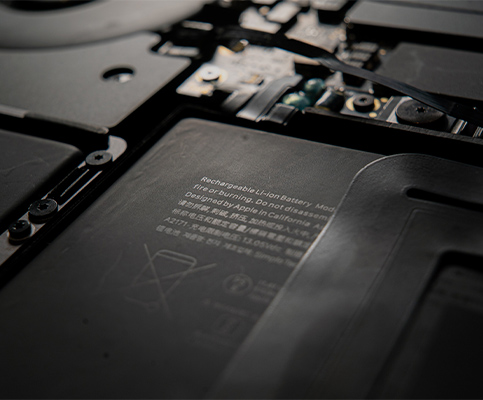Rechargeable Vs. Alkaline Batteries—Which is better.
Posted On: Wed Apr 07 07:00:00 GMT 2021

Rechargeable Vs. Alkaline Batteries: 4 Questions to Help You Decide Which is Right for You
We’ve all seen technology evolve over the course of our lifetimes. Old-fashioned timepieces have been replaced by smart watches. Phones now connect you to a world of information in the palm of your hand. Digital cameras take more vibrant photos than ever before—all without the limitations of film. As our personal tech has continued getting smarter, faster, and more portable, the batteries that power these devices have been evolving, too.
Originally invented in 1899 by Swiss engineer Waldemar Jungner, the alkaline battery was perfected by Canadian chemical engineer Lewis Urry in the 1950s. Even then, alkaline batteries weren’t without their shortcomings (including bulkiness and possible leakage). The development of nickel-metal hydride (NiMH) and lithium-ion batteries in the 1980s paved the way for rechargeable batteries.
The rechargeable lithium-ion battery has truly been a game changer for the consumer electronics industry. Lithium-ion batteries are used in most of our personal tech, including smartphones, tablets, laptops, and most digital cameras. However, many electronics still operate on old-fashioned AA batteries (or something similar). So, when deciding between disposable alkaline batteries or rechargeable batteries—or when shopping for a new device—do you have all the information you need to make an informed decision? Here are four questions to ask yourself before you take the plunge.
1. Are rechargeable batteries more cost-effective than alkaline batteries?
The answer to this question is a definitive “yes.”
In the short term, there’s no denying that single-use alkaline batteries are cheaper. After all, once the batteries have died, you throw them away and replace them with brand-new ones. However, the problem here is that you’ll have to keep buying batteries over and over again.
Rechargeable batteries, on the other hand, may charge more initially, but they make up for it with extremely long lifespans. Most rechargeable batteries last for at least 150 charges, meaning that, over time, they’ll pay for themselves several times over—some even pay for themselves in as few as six charges.
2. Are rechargeable batteries better for the environment than alkaline batteries?
As with question #1, the answer here is a resounding “yes.”
Alkaline batteries are thrown away after use, and when alkaline batteries are thrown away, they wind up in landfills. Once they reach their final resting place, alkaline batteries will often deteriorate and leak start to leak. These dangerous chemicals can then have any number of adverse effects on the environment, from starting landfill fires to contaminating water supplies, threatening fragile ecosystems.
However, the good news is that rechargeable batteries are exponentially better for the environment than their disposable cousins, as they are used over and over again. Plus, rechargeable batteries consume less nonrenewable energy than alkaline batteries, adding to their environmental friendliness.
3. Are rechargeable batteries more convenient than alkaline batteries?
An argument could be made for either case here—after all, once the disposable alkaline batteries in your device run out of power, you simply toss them, replace them, and you’re back in business. However, for a variety of reasons, many view rechargeable batteries as the more convenient option.
For the most obvious example of the convenience of rechargeable batteries, look no further than your smartphone. Today’s phones use a considerable amount of power. Yet, when the power is low, you simply plug it into a charger for a couple hours, and the battery is fully recharged. This same principle can be applied to battery types you may often think of as strictly disposable, like AAs. If you buy a few sets of rechargeable AA or AAA batteries (or whatever battery type you may need) and charge the drained batteries as soon as you replace them in your device, you’ll always have a fully charged set of batteries ready to go (and you’ll never have to scour your house for batteries or run out to the store to grab replacements again).
4. Which devices are better with alkaline vs. rechargeable batteries?
While rechargeable batteries certainly offer more bang for your buck, alkaline batteries are sometimes recommended for low-power devices, such as wall clocks and bike lights. Alkaline batteries start with a slightly higher voltage which often decreases faster than the voltage in rechargeable batteries, which is what makes an alkaline battery go from “working” to “dead” pretty quickly. Conversely, rechargeable batteries may hold on at a lower voltage for longer than alkaline batteries, leading to an unexpectedly dimming light or a mysteriously slowing clock.
On the other hand, more and more devices today—like smartphones, smartwatches, tablets, laptops, digital cameras, and more—run on rechargeable lithium-ion batteries. These batteries charge quickly and can be recharged time and time again, meaning that you’re never without your favorite device for long. For instance, let’s say you’re camping with a group of friends … bringing a durable power bank along on the adventure will make it easy to keep all your favorite devices—even certain high-end digital cameras—fully charged and ready to go.
Plus, when it comes to performance, not all batteries are created equal. For example, let’s say that camping trip you went on with your friends was in northern Vermont just south of the Canadian border. In mid-January. If you’re an avid adventurer who doesn’t mind the cold, it’s important to be mindful of the devices you bring with you and the battery type they use—while the bitter cold affects all batteries to some degree, rechargeable lithium-ion batteries are better in extreme temperatures than disposable alkaline batteries.
Wherever possible, it seems that rechargeable batteries are the way to go.
From keeping the remote control ready to changing the channel at a moment’s notice to powering your favorite flashlight in the backyard or the backwoods, rechargeable batteries are the best solution for virtually any of your battery-powered energy needs. Featuring unmatched longevity and sustainably, rechargeable batteries are designed to survive adventure after adventure—much like Lander’s durable, rechargeable, lithium-powered lanterns, headlamps, and power banks.


